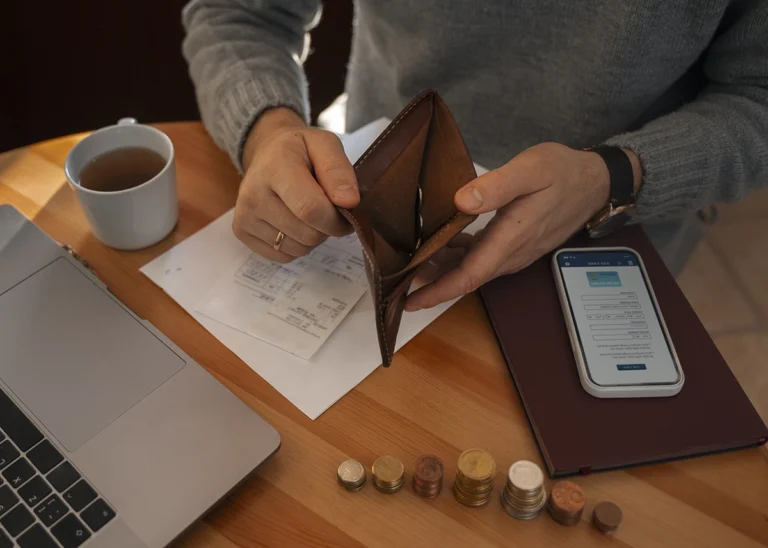Owning a home is often seen as a hallmark of success and stability. It’s a significant milestone, representing financial prudence and personal achievement. However, the true cost of home ownership extends far beyond the down payment and monthly mortgage installments. Many new homeowners are caught off guard by the myriad of hidden expenses that can significantly impact their budgets. In this blog post, we’ll explore these hidden costs, helping you prepare for the full financial responsibility of owning a home.
1. Property Taxes
Property taxes are a significant recurring expense that homeowners must budget for. These taxes vary widely depending on your property’s location, value, and local government tax rates. Many first-time buyers underestimate the impact of property taxes, which can range from a few hundred to several thousand dollars annually. It’s essential to research the property tax rates in your area and include them in your long-term financial planning.
2. Homeowners Insurance
Homeowners insurance is another critical expense that can sometimes be overlooked. This insurance protects your home and personal property against damage or theft and provides liability coverage in case someone gets injured on your property. The cost of homeowners insurance can vary based on the size, location, and value of your home, as well as the coverage limits and deductibles you choose. On average, homeowners spend around $1,200 per year on insurance, but this can be higher in areas prone to natural disasters.
3. Maintenance and Repairs
One of the most underestimated aspects of home ownership is the ongoing maintenance and repair costs. Unlike renting, where the landlord typically handles repairs, homeowners must take care of everything themselves. Routine maintenance tasks such as lawn care, gutter cleaning, and HVAC servicing add up quickly. Additionally, unexpected repairs like a leaky roof, broken appliances, or plumbing issues can cost thousands of dollars. Experts recommend setting aside 1-3% of your home’s value each year for maintenance and repairs.
4. Utilities
While utility costs are also a factor for renters, they can be substantially higher for homeowners, especially those with larger properties. Utilities include electricity, gas, water, sewer, and trash services. Energy-efficient upgrades can help reduce some of these costs, but it’s essential to budget for higher utility bills, particularly if you’re moving from a smaller rental unit to a larger home.
5. Homeowners Association (HOA) Fees
If your home is in a community with a homeowners association, you’ll likely have to pay monthly or annual HOA fees. These fees cover the cost of maintaining common areas, community amenities, and sometimes even exterior home maintenance. HOA fees can range from a few hundred to several thousand dollars annually, depending on the amenities and services provided. It’s crucial to factor these fees into your budget before purchasing a home in an HOA-governed community.
6. Pest Control
Pest control is an often overlooked yet necessary expense. Termites, rodents, ants, and other pests can cause significant damage to your home if left unchecked. Regular pest inspections and treatments can help prevent infestations and protect your property, but they do come at a cost. Depending on the severity of the issue, you might spend several hundred dollars annually on pest control services.
7. Landscaping
A well-maintained yard enhances your home’s curb appeal and value, but landscaping can be both time-consuming and costly. Whether you hire a professional landscaper or take on the task yourself, expenses for lawn care, tree trimming, and gardening supplies can add up. If you live in an area with specific climate conditions, you may also need to invest in irrigation systems or other specialized landscaping features.
8. Appliance Replacement
Home appliances have a finite lifespan, and replacing them can be a significant expense. Major appliances like refrigerators, ovens, washers, and dryers often need replacing every 10-15 years. High-end or energy-efficient models can be particularly expensive, and installation fees can add to the cost. It’s wise to budget for the eventual replacement of appliances and consider purchasing a home warranty to cover some of these expenses.
9. Emergency Fund
Having an emergency fund is crucial for any homeowner. Unexpected events such as natural disasters, significant home repairs, or job loss can occur at any time. Financial advisors recommend having an emergency fund that covers 3-6 months of living expenses, including mortgage payments, utilities, and other essential costs. This fund provides a safety net, ensuring you can handle unforeseen expenses without compromising your financial stability.
10. Renovations and Upgrades
Many homeowners eventually want to personalize or update their homes, whether for aesthetic reasons or to improve functionality. Renovations and upgrades can range from minor cosmetic changes to major structural alterations. Even small projects, like repainting a room or updating light fixtures, can add up quickly. More extensive renovations, such as kitchen remodels or bathroom upgrades, can cost tens of thousands of dollars. It’s essential to plan and save for these projects to avoid financial strain.
11. Mortgage Insurance
If you made a down payment of less than 20% when purchasing your home, you might be required to pay for private mortgage insurance (PMI). PMI protects the lender if you default on your mortgage and typically costs between 0.3% and 1.5% of the original loan amount per year. While PMI can be cancelled once you’ve built enough equity in your home, it’s an additional cost that many first-time buyers overlook.
Conclusion
Owning a home is a rewarding experience, but it comes with a range of hidden costs that can catch new homeowners by surprise. By understanding and budgeting for these expenses, you can ensure that your dream of home ownership remains a positive and financially sustainable reality. Prepare for property taxes, insurance, maintenance, utilities, and other potential costs to safeguard your investment and enjoy the many benefits of owning your own home.




